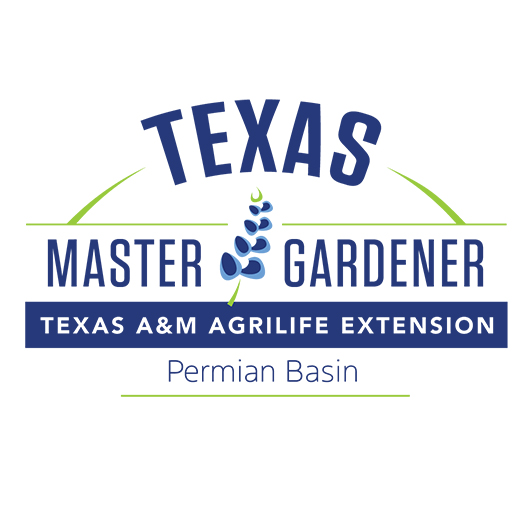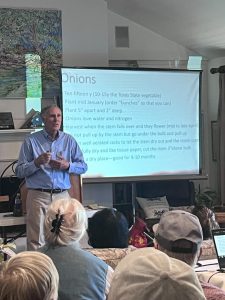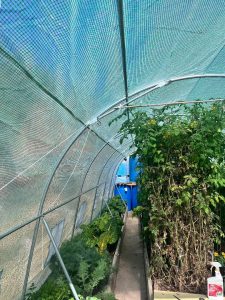By Debbie Roland
Master Gardener
On February 14, Master Gardeners held their first education event of 2024, and it was a great class entitled Strategic Vegetable Gardening. Taught by Jim Longstreet and held at his home the lessons were on point and dealt with growing vegetables in West Texas, a sometimes-rough road. Jim shared his hard-earned knowledge and his struggles which will make our own struggles make more sense. Jim began gardening eleven years ago after a health scare. He adopted a whole food plant-based diet and wanted to know what exactly were in those plants he and his wife were eating. His food became his medicine, and the journey began.
There are many reasons to garden. Some shared that it was their prayer time, getting close to nature, learning the skills their grandparents had such as gardening and canning, saving money, and spending time with kids and grandkids. Getting your children involved with a garden teaches them science and will lead them to actually wanting to taste what they helped grow. Jim stated that he hears many people say that their kids won’t eat tomatoes and he maintains that it is because they have never tasted a home grown, ripened on the vine, fresh tomato. And there is a very big difference.
Jim gave instructions on making your own compost, starting seeds and caring for your garden through our unique temperature variations, the sometimes 60-mile per hour winds, hail and pests. He deals with all these problems and is still able to grow a garden through every season of the year. He cans 100-150 quarts of tomatoes a year from his mid-size backyard in an urban neighborhood. We toured his raised beds of every type, a wind tunnel, greenhouse, cold frame, and saw how he builds protection from the elements all on a budget.
Here are some takeaways from the class:
- Make your own soil by adding compost, perlite, vermiculte and peat moss. He also uses blood meal and bone meal a bit.
- Utilize your neighborhood leaves and grass clippings (none that have had chemicals on them please), kitchen scraps and healthy plant matter to make compost.
- Jim sent us on a journey to research more about Terra Preta, a long ago used process in the Amazon.
- We learned about using Biochar in our gardens.
- Always use a 4 x 4 post on every corner of your raised beds when you build them. They last longer and stay together better.
- Utilize the rainwater that falls from your roof to water your garden. Too much is allowed to run down your driveway and into the street.
- Invest in silver tarps (they don’t break down like other colors in our sun) and use them to protect from the elements.
- Use 50% shade cloth during the summer months. Jim covers his entire garden with it and it still gets enough sun.
- Shade new transplants for several days, plant tall plants on back of garden so that smaller plants are not left in the shade.
- Reduce weeds by using mulch, cardboard, leaves, straw and/or weed cloth.
- Always cage your tomato plants to keep leaves off the ground and add a stake through the middle of the cage to be sure the 65 mph wind doesn’t blow it over.
Jim also gave instruction on planting onions and recommends 1015y onions which were developed at Texas A&M University, and garlic.
As a surprise to all there were many flats of different types of seedlings which had been donated by Bonnie plants and were given to attendees.
These are just a few of the pointers that Jim gave a full house of two separate classes. Permian Basin Master Gardeners have more classes this year, a Spring Symposium and a Fall Symposium coming for you in 2024.
The Spring Symposium will be March 23 at the Midland AgriLife Office and will be from 9:30 a.m. to 2 p.m. with lunch being provided all for just $20.00. There will be three speakers from the area. You will learn more about what makes West Texas unique and how to deal with changing issues. Follow our Facebook page “Permian Basin Master Gardeners.”
Watch our articles here and we will provide additional details when it is time to sign up. You’ll be glad you did.
If you have questions, call the AgriLife office in Odessa at 498-4071 or in Midland at 686-4700. Additional information, and our blog for access to past articles, is available at westtexasgardening.org. Click on “Resources.”






